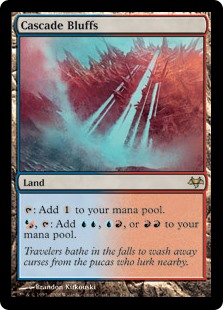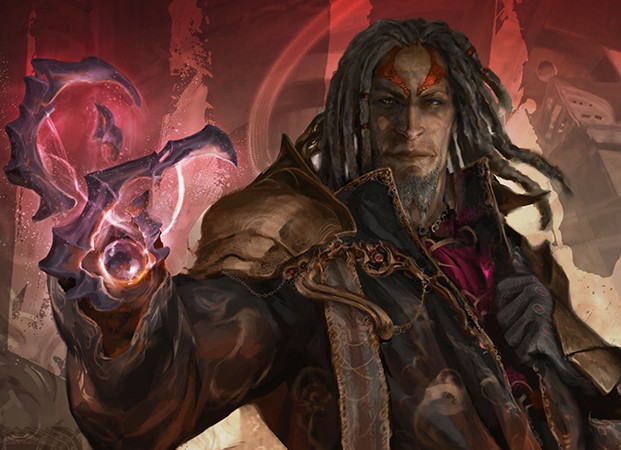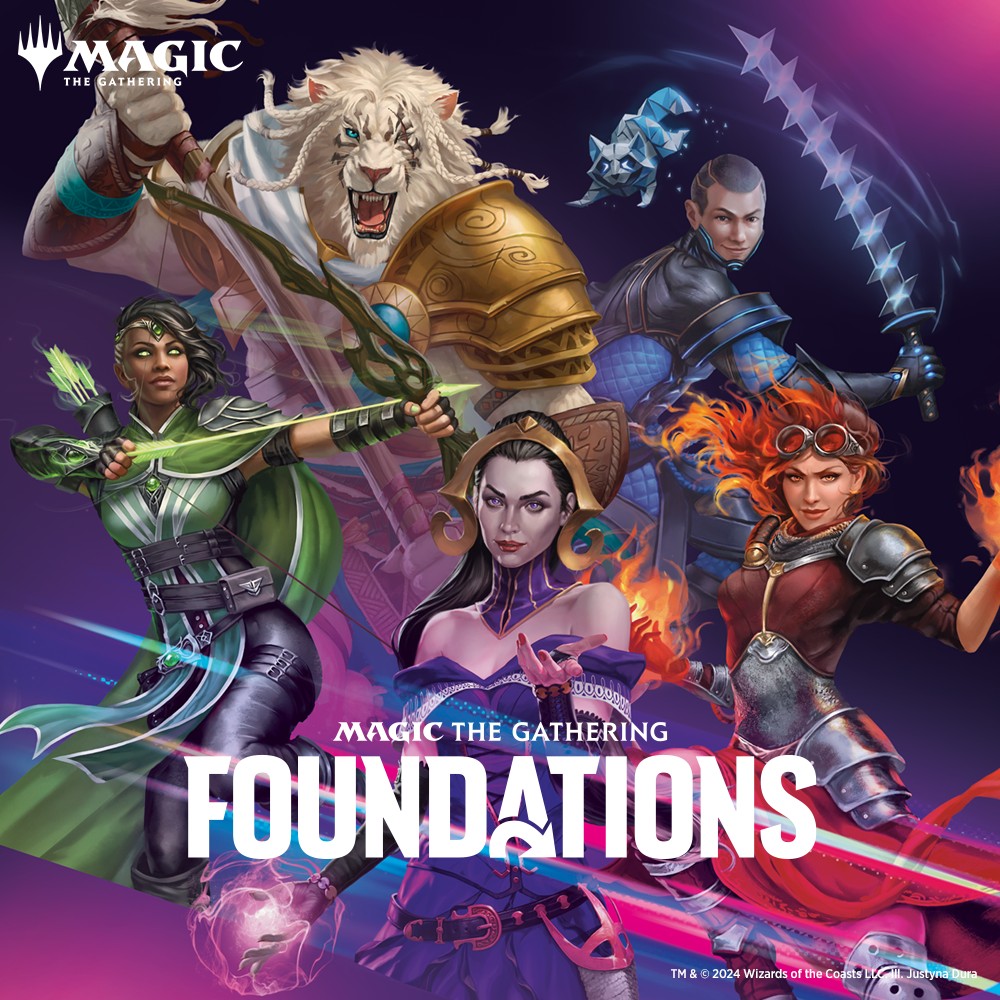Last time, we discussed how to join the competitive magic scene. If you haven't had a chance to read that piece, please click here to read it. Today's article will be about another aspect of improving your game, namely around the concepts of bluffing. Next week's article will be focused on the concept of Tells. Magic is a game of information, the more information you have, the better informed your decisions are. So it stands to reason that you want to get as much information as possible while giving your opponent misinformation.
Quick Aside: Now I'm generally of the camp that the importance of bluffing is overrated in Magic, but knowing how to bluff and catch bluffs will help you.

Let's start with the basics:
A bluff is trying to deceive someone as to one's abilities or intentions. You want to bluff opponents, not get bluffed.
A tell is an unconscious action that is thought to betray an attempted deception. You want to read tells, not give them.
If this is your first time hearing about both concepts, grab a seat and some snacks because you're about to get a pretty big lesson on how to apply the above.
Lesson #1: Your bluffs will typically get through when there is low risk to you if they're right, and high risk to them if they're wrong
Let's flashback to one of my favourite formats of all time, Time Spiral draft. your opponent casts Jaya Ballard, Task Mage on turn three, and on your fourth turn you attack with a 1/1 creature and your 3/3 into the Jaya.
Do you think your opponent ever blocks here? There are so many things that can go wrong with the block, and Jaya will take over the game if you don't have an answer for it. So <1% of the time they'll block.
If you only attack when you have the trick, you're giving away too much damage in a spot like this.
Lesson #2: Your opponent is more likely to believe you have a trick if they have seen it before
You cast three copies of Strength in Numbers in game one. In game two, your opponent is less likely to block on a crucial turn if they've seen the trick already and will likely try to give themselves a turn to have untapped mana so that they can interact with you. This brings us to the next lesson which is:
Lesson #3: Bluffs work less when your opponent has interaction
Sometimes you'll want to attack into your opponent's creature and represent the trick, but they'll have the requisite mana to cast a removal spell. This makes calling your bluff extremely easy as they're looking to grab the easy two for one.
Lesson #4: When you are trying to reverse bluff, don't do something obvious
Sometimes you'll want to act like you don't have something. Most players make the mistake of doing everything but waving the white flag that they have nothing when they have it. You can see that in the finals of GP Amsterdam last weekend, when the UR player (Benjamin Luft) has a Thing in the Ice with two counters and is facing down lethal from Lucas Blohon if he activates both of his Hissing Quagmires.
Benjamin has just drawn a card for his turn giving him three cards, and then plays a land for his turn and passes. In reality, his hand is now double Disallow which will allow him to Stifle the activation ability of both of the lands, flipping the Thing in the Ice and bouncing all of Lucas's creature, resulting in the lethal attack next turn from Awoken Horror. Lucas sees the writing on the wall and goers to activate his Hissing Quagmire.
This is where poor Benjamin tries to get fancy and throws a monkey wrench into his plan by trying to oversell the fact that he has lost. He taps three mana, peers at one card and makes it look overtly like it's not Disallow. So he picks up the other card and Disallows the ability. Now, Riley Knight not being a magic player and just a colour commentator instantly states, "oh wow, he's just made it clear that he doesn't have it."
But for a seasoned professional like Lucas, he realizes that if Benjamin really didn't have both copies, he would do everything in his power to hide that information and make Lucas question his attack. Add that to the fact that this was his final's opponent and not some random new player from FNM, Lucas realized that his opponent 100% had drawn the second copy of Disallow.
So he correctly passed the turn, Benjamin drew Hieroglyphic Illumination flipping his Thing in the Ice and then attacked into the untapped four lands when Lucas activated his Hissing Quagmire. He then cast a topdecked Harnessed Lightning to force lethal damage. While picking up his cards, he showed Lucas the second copy of Disallow in his hand but Lucas obviously already knew it was there.
If Benjamin had just kept both cards in his hand, hesitated and then cast the first Disallow, then Lucas would have just gone for it there and lost the game. The way he played it, Lucas was easily able to smell out the reverse bluff and it took a topdeck to win.
You can watch the clip here.
Lesson #5: Do not try to bluff someone who would not pay attention to your bluffs
If the person you're playing against isn't paying attention to anything you're doing, or is just a newer player, your bluffs will rarely get through because they tend to rarely play around anything.
Lesson #6: Do not try to bluff when not calling is the same as conceding.
I was playing in the finals of an Extended store event for a Mox Sapphire about five years ago. I was playing no other than local pro Lucas Siow in the quarterfinals and the stakes were pretty high. We were playing the Scapeshift mirror and he had won the first game. Lucas had eight lands out while I only had seven. He cast Scapeshift and floated UUUG in his mana pool. I sighed, and cast my only piece of interaction which was Remand. Lucas then berated himself because he realized that trying to bluff Cryptic Command was pointless because I have to call every single time. Not calling is the same as conceding. He ended up passing the turn tapped out and I resolved my own Scapeshift for the win. I would end up going on to win this tournament! You can read Lucas's recall of the event here.
By the same token, trying to bluff a combat trick when your opponent is at three life and you have a Grizzly Bears attacking into their Hill Giant is pointless, they'll block 100% of the time.
Lesson #7: When wondering if your opponent is bluffing, ask yourself the same questions as above.
What do they have to lose if you call? Can they even win if you call their bluff?
Sometimes a player will try to lower your life total enough that some spells in their deck can give them the reach they need to finish you off. Keep that in mind when you're choosing whether or not to block your opponent's creatures in certain circumstances.

I hope you enjoyed part one of Bluffing and Tells in Magic. Next time we'll delve into how you can stop yourself from giving off tells as well as how you can catch your opponent's ones!
Post in the comments below or tweet at me (@SammyTMTG). And, if you want to keep up with my articles and happenings, please make sure you hit the follow button for Twitter @ SammyTMTG. I’ll see you next week for another article on improving your magical skills! Until then, have a great weekend!
Sammy T


